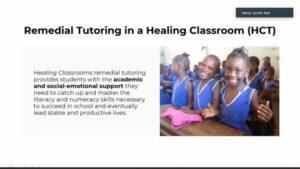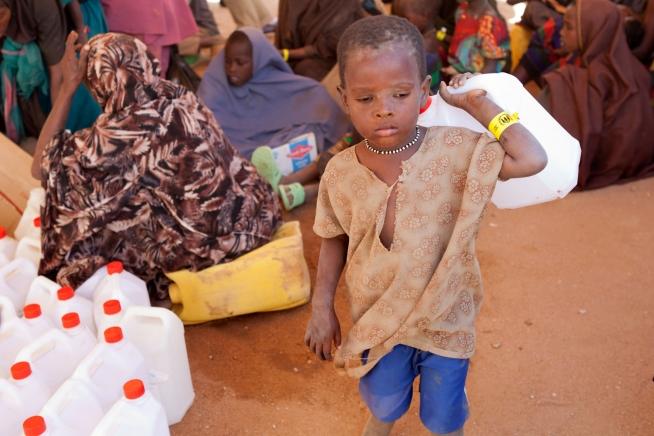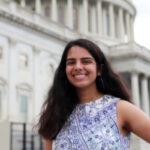Meeting the Education Needs of Displaced Children and Young People
“This is about ensuring that every single child around the world has access to education.”
 On July 27, 2021, Canada Development, Global Partnership for Education, Education Cannot Wait, UNHCR, and UK Aid together hosted the “Meeting the Education Needs of Displaced Children and Young People” event during the Global Education Summit. This event highlighted the need to ensure education is accessible and prioritized in plans to build back better post-COVID for children and youth in emergency settings.
On July 27, 2021, Canada Development, Global Partnership for Education, Education Cannot Wait, UNHCR, and UK Aid together hosted the “Meeting the Education Needs of Displaced Children and Young People” event during the Global Education Summit. This event highlighted the need to ensure education is accessible and prioritized in plans to build back better post-COVID for children and youth in emergency settings.
Jennifer Sklar, Senior Education Director at International Rescue Committee, and Larry Aber of New York University Global Ties presented their findings from a tutoring program called Education in Emergencies: Evidence for Action (3EA) in Lebanon, Niger, and Sierra Leone. 3EA seeks to marry innovative program delivery with rigorous research to build a global knowledge base about what works to improve children’s learning and well-being in crisis-affected contexts, including how, where and for whom it works and at what cost. Sklar also discussed the importance of social-emotional learning and behaviors teachers noticed in students in conflict-affected settings. Sklar concluded by highlighting remedial tutoring in a healing classroom and how providing academic and social-emotional support will help students succeed and eventually live stable lives.
Larry Aber spoke more deeply about the findings of 3EA including the impact of healing classrooms and social-emotional learning. According to the study, when both were applied, literacy and numeracy improved, students were happier, and performances in school improved. Aber also spoke about how 3EA’s research, including interviews about social-emotional learning with parents, teachers, and children, empirical social-emotional framework mapping, and by using at-scale development and testing aligned to the contextualized social-emotional framework.
By the end of 2020, more than 82 million people were forcibly displaced – of which 33 million were under age 18. How can we make sure that these children and youth are reached and able to learn? The “Meeting the Education Needs of Displaced Children and Young People” event highlighted some of the tools needed in order to ensure that education is accessible to all student in crisis-affected settings and the importance of understanding the context. Thank you to all the speakers and organizers. As Education Cannot Wait Director Yasmine Sherif urged, “we must move faster, bigger and bolder now” to reach all children and youth with holistic, quality, inclusive education.
For more information and to watch the event, see here.
Shruti Nallappa graduated with a degree in Global Affairs, a minor in Korean Studies, and dual concentrations in Global Governance and Human Security from George Mason University in December 2019. At the Global Campaign for Education - US (GCE-US), she is the Senior Fellow, where she assists with many of the organization's needs including social media presence, communications, engagement, public policy, and advocacy work. As a Senior Fellow, she hopes to gain knowledge about improving education at both an international and domestic level and the steps necessary in order to implement quality education policies. Shruti previously served as an intern for Congressman Hakeem Jeffries (NY-08) in Washington, D.C. where she worked closely with the Legislative Director and Foreign Affairs staff. She has also studied at George Mason University Korea and the University of Oxford in England where she obtained a certificate in history, politics, and society. Shruti is now pursuing her graduate studies at The George Washington University where she will be obtaining an MA in International Affairs with a focus on the Africa region and humanitarian assistance.


